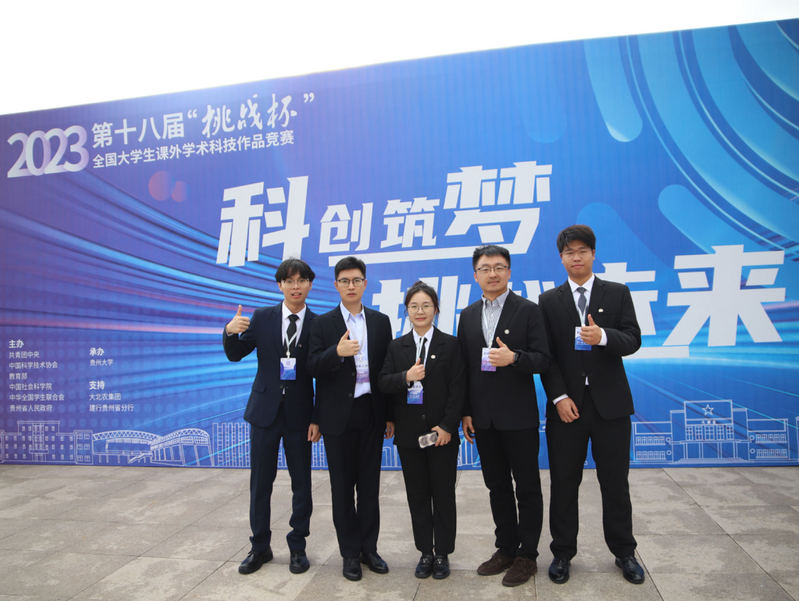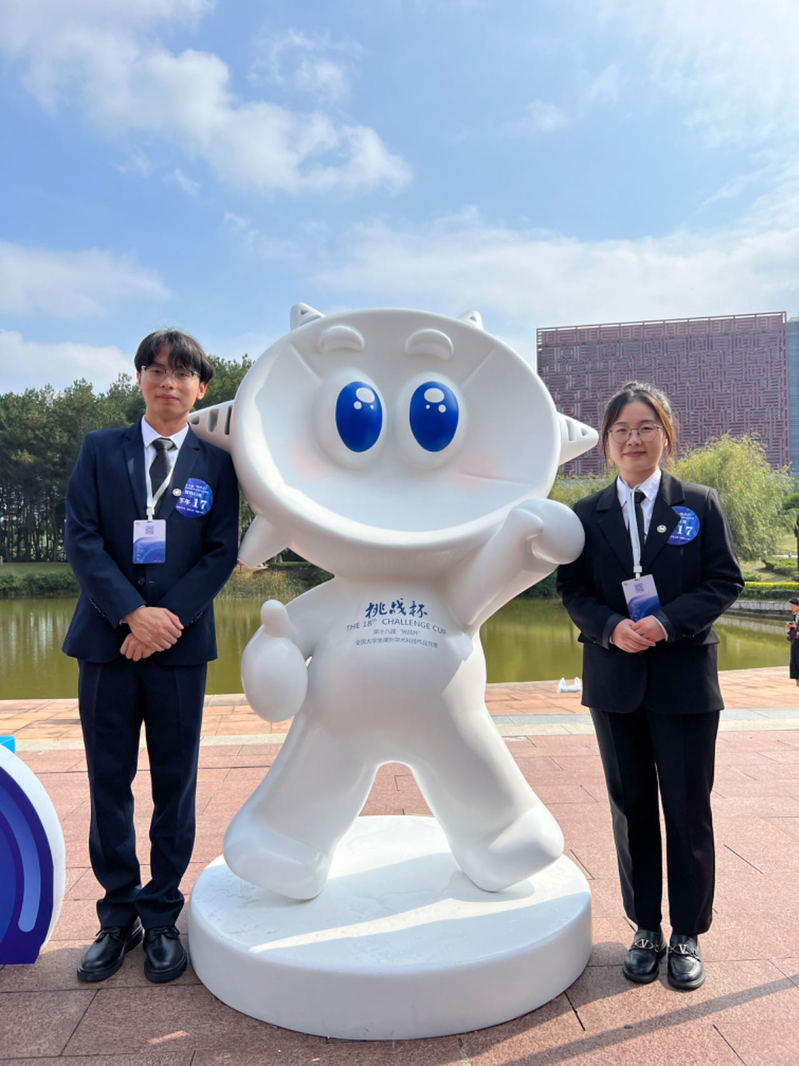The 18th Challenge Cup National Undergraduate Extracurricular Academic Science and Technology Works Competition, which was co-hosted by Communist Youth League of China (CYLC) Central Committee, China Association for Science and Technology, Ministry of Education, the Chinese Academy of Social Sciences, the All-China Students’ Federation and the People's Government of Guizhou Province and organized by Guizhou University, was held at Guizhou University from October 27 to 31, 2023. The Program, Atomic Scale Design and Electrochemical Mechanism Research of Key Materials for Lithium Air Batteries jointly completed by undergraduate students Zhang Nengbiao, Ma Bingbing, Ren Xiaozhe, Hu Zhaozhao and Hu Ruiqi from the NKU School of Materials Science and Technology under the guidance of their teachers Liu Junqing and Dong Yue, won the first prize in the category of natural science academic papers in the general competition.

The program proposed the design and preparation of electrode materials for lithium-air batteries at the atomic scale, and successfully constructed new high-efficiency positive catalysts such as ruthenium molybdenum based nanostructured catalysts and ferrite based single-atom catalysts. It deeply explored the redox reaction kinetics and the structure-activity relationship between electrode material structure and performance. Especially, the single-atom catalysts have been used in lithium-nitrogen batteries for the first time, which becomes a viable NKU solution to address the challenges for lithium-air batteries.

During the preparation period, the School and Nankai University at large provided strong support and sophisticated technical guidance for the program. Coinciding with the completion and operation of Tiankai Higher Education Innovation Park, Nankai University summoned various resources and innovative elements and organized more than 40 expert guidance, docking and exchange meetings to improve the program in all dimensions. During the pre-competition guidance, Liu Junqing checked the topic selection and scientific ground for the program to give directions patiently, and Dong Yue sorted out the logic sentence paragraph by paragraph to ensure clear and concise expression. The success in this competition was largely attributable to the unity and cooperation of the teachers and team members. The members were clearly responsible for their assigned work to complement their advantages, and demonstrated the enterprising spirit of the students of Materials Science of the new generation.
The School of Materials Science and Engineering will also continue to adhere to the educational philosophy of intensifying Party building efforts, improving the discipline while sticking to ideological and political education, stimulate students' enthusiasm for scientific research and innovation, strengthen their professional thinking, help improve their scientific research and innovation abilities, and encourage students to actively participate in innovation and entrepreneurship practice to make brilliant research achievements!
The Challenge Cup competition, jointly held by the Communist Youth League of China (CYLC) Central Committee, China Association for Science and Technology, Ministry of Education, the Chinese Academy of Social Sciences, the All-China Students’ Federation and People’s Government of the host province, is an exemplary and mass oriented competition with clear purposes. This competition has been held since 1989 and has developed into a huge platform” attracting over 2 million university students to participate in each session. It has played a positive role in promoting the growth of young innovative talents, deepening quality education in universities, and promoting economic and social development. The Challenge Cup competition has been held for 17 consecutive sessions. Among the winners, many of them are now academicians, heads of State Key Laboratory, professors or doctoral supervisors. The competition has had a wide and good impact on universities and even the communities and is known as the Olympian event of scientific and technological innovation for contemporary university students.
